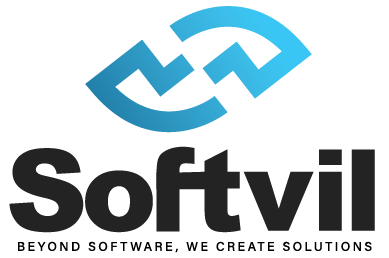In today’s hypercompetitive business landscape, the age-old adage “time is money” holds truer than ever. The relentless pursuit of efficiency and cost-effectiveness has become the cornerstone of success for businesses worldwide. Enter outsourcing, a strategy that’s not just a buzzword but a vital tool in achieving these objectives. From streamlined cost structures to global access to specialized talent, outsourcing, particularly when partnering with a reputable software outsourcing company, is revolutionizing how businesses operate.
The significance of outsourcing in the modern business landscape cannot be overstated. In this era of rapid technological advancements and ever-evolving market demands, companies are under constant pressure to adapt, innovate, and reduce operating expenses. This article delves into the financial aspects of outsourcing, exploring how it can help businesses, in collaboration with a trusted software outsourcing company, cut costs and boost efficiency. We’ll dissect the key benefits, including labor cost savings, reduced overhead, scalability, global talent acquisition, and the trimming of administrative and HR-related expenses. So, if you’re looking to not only survive but thrive in today’s competitive environment, keep reading to discover how partnering with a software outsourcing company can be your secret weapon.
Understanding Outsourcing

Outsourcing, often in collaboration with a trusted software outsourcing partner, is a pivotal strategy employed by businesses to gain a competitive edge in today’s dynamic landscape. To comprehend the full potential of outsourcing in the modern business world, it’s crucial to start with a foundational understanding of the concept.
Defining Outsourcing and Its Variants
Outsourcing is the practice of contracting specific tasks, functions, or processes to external parties, typically third-party service providers or software outsourcing companies. These tasks can range from customer support and software development to administrative functions. Three primary variants of outsourcing are commonly employed:
Offshore Outsourcing: Involves contracting tasks to service providers located in distant, often overseas, locations.
Nearshore Outsourcing: Focuses on service providers in neighboring or nearby countries, offering advantages like proximity and shared time zones.
Onshore Outsourcing: Engages service providers within the same country or region, providing cultural and linguistic alignment.
The Evolution of Outsourcing
Outsourcing has a rich history that has evolved in response to changing business needs. Initially, it primarily involved simple, non-core tasks. However, over the years, it has expanded to encompass a wide array of functions. With advancements in communication and technology, businesses can now outsource complex and mission-critical processes, including software development, cybersecurity, and customer service.
Diverse Industries Benefitting from Outsourcing
Various industries have recognized the cost-saving and efficiency-boosting potential of outsourcing. These include:
- Information Technology: Companies often partner with software outsourcing companies for development and maintenance.
- Customer Support: Many businesses outsource their customer service and helpdesk functions.
- Manufacturing: Outsourcing manufacturing tasks to specialized facilities is common.
- Finance and Accounting: Financial institutions outsource processes like data entry and reconciliation.
- Healthcare: Medical billing, transcription, and data management are commonly outsourced.
Understanding these fundamentals provides the groundwork for exploring the extensive financial benefits of outsourcing in the subsequent sections, demonstrating why outsourcing is a strategic imperative for businesses seeking to thrive in the contemporary business landscape.
Labor Cost Savings

One of the primary financial advantages of partnering with a reputable software outsourcing partner is the significant reduction in labor costs. This section delves into how outsourcing enables businesses to access skilled talent while keeping expenses in check.
Access to Skilled Talent at a Fraction of the Cost
Outsourcing opens the door to a global talent pool, allowing businesses to tap into specialized skills and expertise without the financial burden of hiring full-time, in-house employees. Software development, for instance, often requires a team of skilled programmers, designers, and testers. Outsourcing these roles can substantially cut costs, as skilled professionals in countries with lower living costs can be engaged at competitive rates.
Examples and Statistics on Labor Cost Savings
Real-world examples and statistics underscore the cost-saving potential of outsourcing. For instance, a software development project that might cost a fortune to execute in-house can be completed more affordably when outsourced to a software outsourcing company with expertise in the field. Savings can often reach 40-60% compared to in-house expenses, depending on the location of the outsourcing partner.
Impact on Salaries, Benefits, and HR Expenses
Outsourcing mitigates the need for providing in-house employees with salaries, benefits, and HR-related expenses. This cost reduction encompasses employee perks like health insurance, retirement contributions, and paid time off. Additionally, businesses can eliminate costs associated with recruitment, training, and onboarding. Administrative expenses related to HR management and payroll processing are also streamlined, further contributing to overall cost savings.
Overhead Cost Reduction

Cost-efficiency in business extends beyond labor expenses. Overhead cost reduction, particularly when working in tandem with a trusted software outsourcing partner, is a key benefit that can enhance a company’s financial health. This section details how outsourcing streamlines overhead costs and the advantages it offers.
Minimizing the Need for Additional Office Space, Utilities, and Equipment
Outsourcing reduces the demand for physical office space, as the majority of outsourced tasks are performed at the service provider’s location. This translates to substantial savings on rent, utilities, and office equipment. With a leaner in-house team, you can optimize your existing office space, further reducing real estate expenses.
Real-World Scenarios of Overhead Cost Reduction
Real-world examples abound, illustrating the tangible cost reductions achieved through outsourcing. Consider a software development company that outsources its testing and quality assurance to a specialized software outsourcing partner. By doing so, it avoids the need to invest in additional computers, testing equipment, and office space. Another instance is customer support. Outsourcing call center operations significantly diminishes the need for larger office facilities, workstations, and utility expenses.
Advantages of Lower Operational Overhead
Reducing overhead expenses bolsters a company’s financial position. Funds saved on office-related costs can be reinvested in critical areas, such as research and development, marketing, or business expansion. A leaner operational overhead enhances cash flow, providing businesses with more financial flexibility. Moreover, reduced overhead costs contribute to improved profit margins, making a company more competitive and agile in the marketplace.
Scalability and Flexibility

Scalability is a critical advantage of outsourcing, especially when partnered with a reliable software outsourcing partner. This section elucidates the flexibility outsourcing provides in resizing your workforce, illustrates practical examples, and highlights the profound impact on efficiency and cost-effectiveness.
The Flexibility of Workforce Scaling
Outsourcing grants businesses a unique ability to adapt swiftly to fluctuating demands. Whether it’s a sudden surge in projects or the need to downsize during economic downturns, the outsourcing model offers unparalleled flexibility. By collaborating with a software outsourcing partner, you can readily add or reduce team members without the long hiring and termination processes associated with in-house staffing.
Real-Life Business Benefits from Quick Adjustments
The advantages of workforce scaling are vividly demonstrated across various industries. For instance, e-commerce companies can upscale their customer support teams during peak shopping seasons, ensuring rapid response times to customer queries. Conversely, during the offseason, they can downsize without the burden of maintaining a large in-house workforce. This scalability fosters cost-effectiveness by avoiding idle employees during downtimes.
Scalability’s Impact on Efficiency and Cost-Effectiveness
Scalability isn’t solely about addressing short-term surges or reductions in work. It also significantly impacts the overall efficiency and cost-effectiveness of business operations. Businesses that embrace scalability through outsourcing can align their workforce precisely with the workload, preventing wasted resources and increasing productivity. With scalability, they can also ensure that the right skills are accessible when needed, enhancing the quality of the output.
Administrative and HR Overhead Reduction

The benefits of outsourcing, in conjunction with a proficient software outsourcing partner, extend beyond the reduction of labor and overhead costs. This section explores the substantial administrative and HR overhead reduction that can be achieved through outsourcing, emphasizing the importance of streamlined processes.
Managing Fewer In-House Employees for Reduced Overhead
Outsourcing allows companies to maintain a leaner in-house workforce. Fewer in-house employees translate to lower administrative and HR-related expenses. These savings encompass employee recruitment, onboarding, training, and management. Moreover, the need for HR personnel to handle disputes, maintain records, and manage benefits is diminished when a significant portion of the workforce is outsourced.
Specific Examples of HR Management Cost Savings
Human resources (HR) is an area where businesses can realize significant cost savings through outsourcing. For instance, employee benefits administration often involves substantial expenses. Outsourcing benefits management to a specialized provider can reduce costs while ensuring comprehensive coverage for employees. Moreover, the automation of HR processes, such as payroll and time tracking, streamlines operations, further reducing administrative and HR-related costs.
Streamlined Processes for Administrative Cost Reduction
The importance of streamlined processes in reducing administrative costs cannot be overstated. Administrative tasks like data entry, document management, and record-keeping can be outsourced to experts in the field. This leads to increased efficiency and reduced costs. Additionally, outsourcing partners often employ advanced technology and practices that help businesses minimize administrative inefficiencies.
Conclusion
In conclusion, outsourcing emerges as a powerful financial strategy, with labor cost savings, reduced overhead expenses, scalability, and streamlined administrative costs at the forefront of its benefits. The collaboration with a reliable software outsourcing partner enhances efficiency and financial health. It’s clear that businesses can harness these advantages to maximize cost-effectiveness and profitability. As the business landscape evolves, outsourcing stands as a strategic imperative for those seeking to not only survive but thrive. In light of these substantial advantages, businesses are encouraged to seriously consider outsourcing as a key tool for cost reduction and performance enhancement, positioning themselves for success in a competitive global market.

